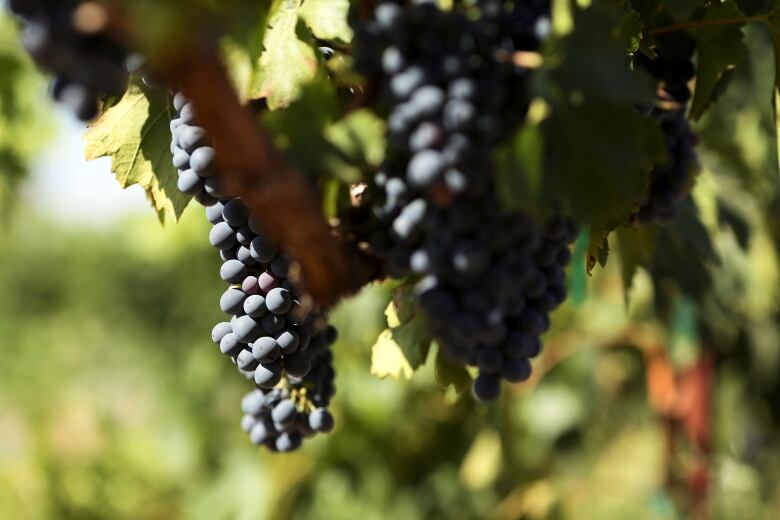Global warming threatens some of the world's favourite wines for surprising reasons
Scorching hot work conditions for grape pickers lower productivity

In the wine industry, it's not just the grapes that are affected by climate change, but the people picking them.
Scorching work conditions for the farm labourers who dothe largely manual grape harvest could resultin productivity and economic losses for the wine industry, according to a study published in the journal Temperature.
The study is the first of its kind in Europe to assessthe impact of heat on agriculture workers.
Researchers from Greece's University of Thessaly studied workers in the vineyards of Cyprus, where grape pickersoften endure temperatures up to 36 C.
Theauthors used time-motion analysisto monitor study volunteers duringevery second of theirwork throughout fourshifts. Additionally, the team measuredenvironmental temperature against average skin temperatures of their subjects.
Unscheduled work breaksincreased up to 2.1per cent for every additional degree of temperature.
During the whole study period,12.4 per centof total work shift time was lost to unscheduled breaks.
The study concludedthat grape pickers experienced increased workplace heat, leading to "significant labour loss."
The authors pointed out that workplace heat stress hasheftyfinancial implications across many industries. In Germany in 2004, for example, financial costs linkedto heat-related work absenteeism and reduced productivitywere estimated between $1 billion to $4.5 billion, while similar findingsfor Australia between2013-14 indicated total losses around $8billion.
A delicate crop
Earlier studies have established climate changeas a major factor in wine production, even before the impact on workers is taken into account.
A 2016 report in the Journal of Wine Economics, for instance, said that climate has a greater effect on the development of the vines and the composition of fruit than the soil conditions and the variety of grape.
Temperature affects when the grape vines bud and fruit ripens, as well as the balance of sugars and acidity. Water deficits make for smaller berries and higher tannis, that study found.
Grapes are a delicate crop, both in terms of the narrow temperature range in which they can grow, and the quality of the final product, saysProf. GaryPickering, a biologist and viticulture researcher fromBrockUniversity in St.Catharines, Ont.

"We're seeing both in traditional wine-growing regions in Europe and the emerging wine-growing regions, lots of direct impact from climate change already," he says, adding there will be "very severe impacts over the next couple of decades."
While the issues vary in different parts of the world,the most severe impacts are from longer dry periods and drought episodes during the growing season, says Pickering.This affects not only the growers' ability to keep the vines alive but the process of ripening the grapes.
"Increased frequency of extreme weather events are the other big one," he says. Around the world wine regions are experiencing not only droughts but severe storms, and very cold or hot temperatures.
"These have implications in terms of the consistency of grape quality that the consumer looks for when they buy their bottle from one year to the next," says Pickering.
At first blush, the warming climate seems advantageous for Canada's relatively young wine industry, because higher temperatures have allowed new wine regions to emerge here while old world wine regions have contended with problems like drought.
"There's certainly opportunities for the Canadian industry as well as threats from climate change," says Pickering, who points to the wildfires in B.C. as an example of extreme weather events that are occurring here more often.
"Smoke from the wildfires can taint the grape and taint the wine that follows," he says. "They definitely taste smoky."
Asked if climate change is driving up the price of wine, Pickering points to a classic high-end wine as an example: red Bordeaux. "Bordeaux has struggled over the last few years to produce that top-end product."













_(720p).jpg)


 OFFICIAL HD MUSIC VIDEO.jpg)
.jpg)



























































































